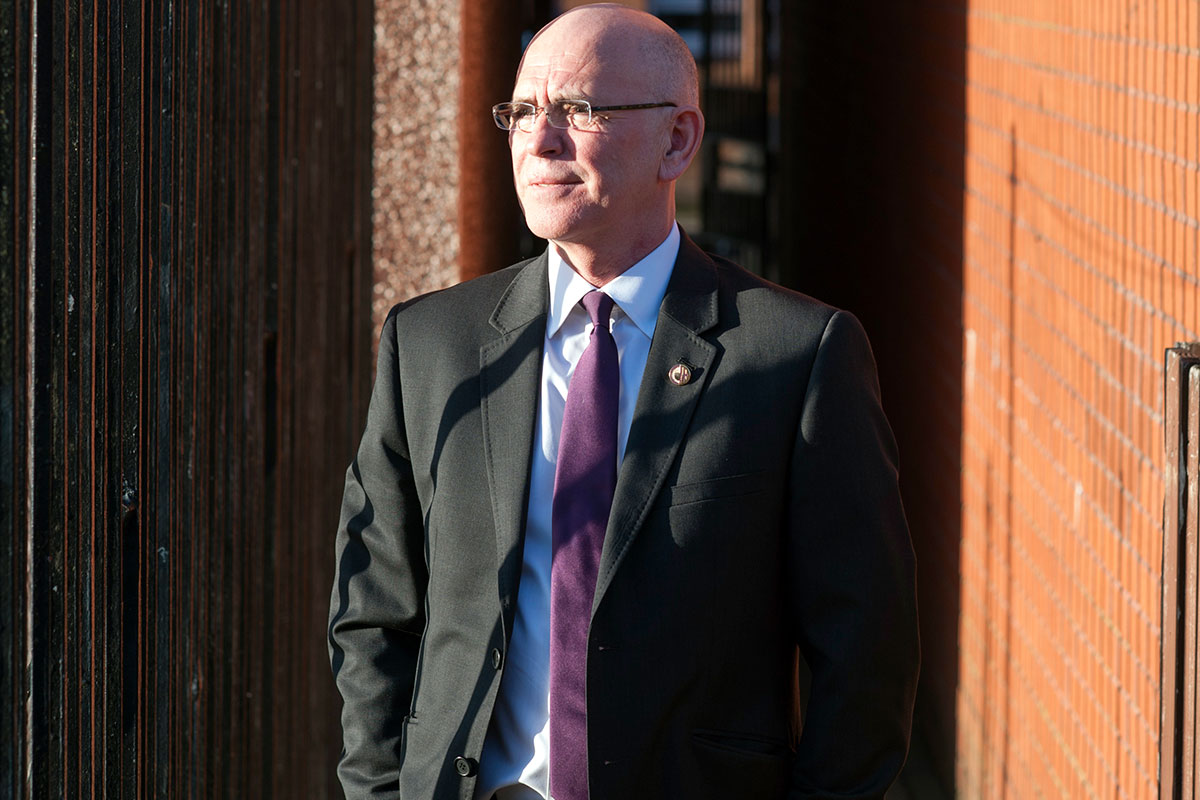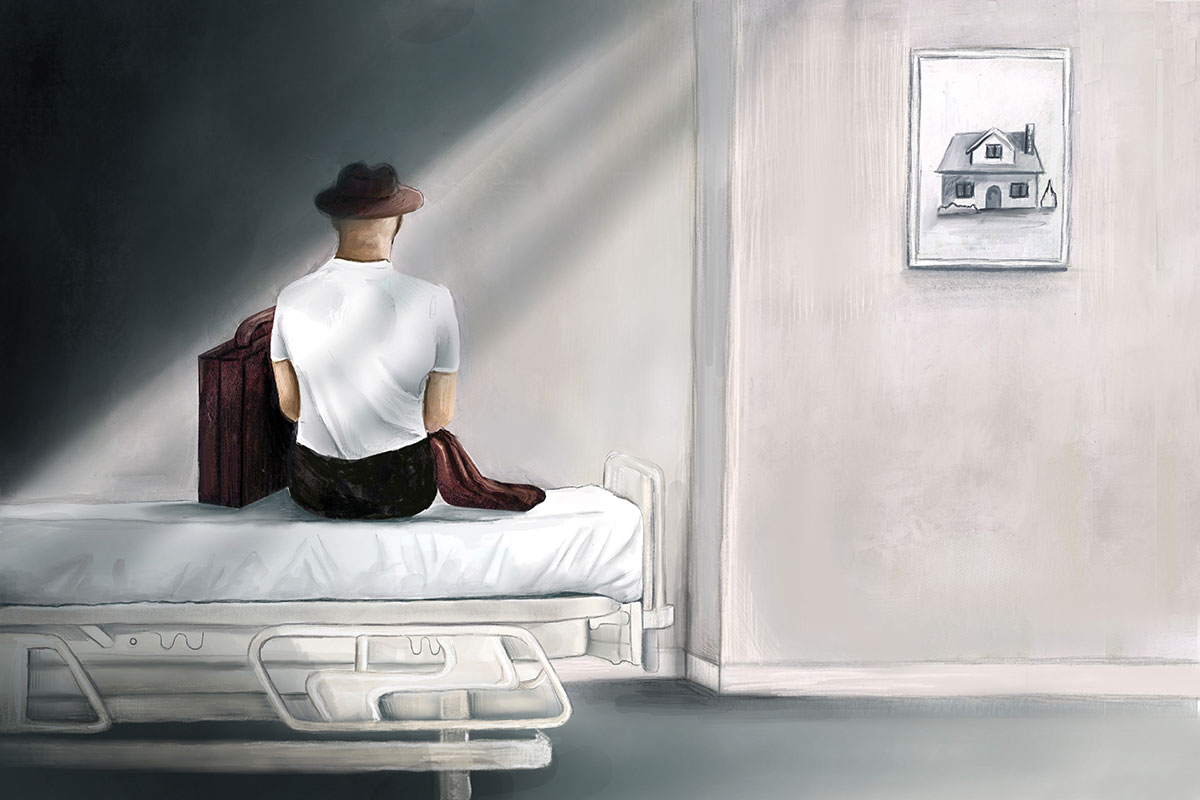You are viewing 1 of your 1 free articles
Will there be a stronger role for the Housing Ombudsman?
Until recently, the Housing Ombudsman has been somewhat hidden in the shadows. But against a backdrop of changing consumer regulation, is it set to have more influence? Nathaniel Barker reports. Picture: Getty
‘Consumer regulation’ is likely to be a phrase that this magazine prints very frequently in 2019. In the aftermath of Grenfell, it has been thrown sharply into the spotlight – with survivors of the blaze attacking the Regulator of Social Housing (RSH) for its silence on issues affecting tenants in the build-up to the disaster.
Then, the Social Housing Green Paper floated the idea of tougher consumer regulation.
And the Shelter housing commission report called for a tougher move still: the creation of a standalone regulator for tenant services.
All this relates to the RSH, but last week the sector was reminded of another body sometimes forgotten about in the make-up of consumer regulation. For the first time, the Housing Ombudsman issued a formal report criticising a housing association – in this case Metropolitan Thames Valley, for maintenance “maladministration” at one of its blocks.
“We need to be highlighting when landlords are not complying with our orders,” Andrea Keenoy, interim housing ombudsman
So as the future of consumer regulation is shaped, what role will the ombudsman be expected to play?
Andrea Keenoy, interim housing ombudsman, explains that the report was issued because Metropolitan failed to comply with one of its orders in the required timescale following a complaint.
“We need to be highlighting when landlords are not complying with our orders,” she tells Inside Housing. “If there are other social landlords in the same situation then we will do it again.
"We only started tracking compliance a few years ago, and this is the first time a landlord has not complied with one of our orders within a reasonable timescale.”
The ombudsman’s remit is as a complaints service for social housing residents, typically after they have exhausted their landlord’s internal complaints process. Having investigated a complaint, it may issue orders to the landlord – such as to pay out compensation or to change policies.
“When we make an order and landlords don’t comply, we can report them to the regulator or to their board,” says Ms Keenoy. “And if there’s an ongoing problem, we would track it and do another report, but there wouldn’t be anything over and above that – it would follow the same cycle.”
In other words, the ombudsman doesn’t have the power to take legal action or to fine landlords. Beyond reputational damage, there are few concrete consequences of breaching the terms of the ombudsman scheme.
Ms Keenoy insists that the system generally works well. The compliance rate is very high: within three months in 99% of cases and within six months in 100%.
Nevertheless, Steve Douglas, co-chief executive of housing consultancy Altair, argues that the ombudsman’s teeth could be sharper. “Where a housing association has been given a report and agreed a set of actions and failed to move forward on those actions, the ombudsman should have greater powers of sanction and redress,” he says – including possible fines. But the main way to improve the service, he adds, would be to boost its “visibility” to tenants.
Beyond reputational damage, there are few concrete consequences of breaching the terms of the ombudsman scheme
One housing association chief executive tells Inside Housing that while the ombudsman is generally taken seriously by the sector, “it is painfully slow”. The average time taken for the service to complete a case was eight months in 2017/18, against a target of six months.
The green paper itself notes that many people are unaware of the Housing Ombudsman and acknowledges that meeting the six-month target will require hiring and training more staff. It also draws particular attention to concerns with the “democratic filter”.
This refers to a requirement, introduced in the Localism Act 2011, for residents to refer complaints to a “designated person” – that is, a councillor, an MP or a tenant panel – or to wait eight weeks before approaching the ombudsman.
The paper admits that this democratic filter “does not appear to work for residents”, posing “an additional hurdle before accessing the Housing Ombudsman that does not apply to people with complaints in most other sectors”.
It suggests halving the waiting period, or removing the
stage altogether. The ombudsman expressed strong support for scrapping the democratic filter – while warning that it would need more staff to respond to increased demand.
As Ms Keenoy outlines, it would also like additional powers, although not for enforcement. “On individual complaints when a complaint isn’t going through the landlord’s process, we want the power to compel the landlord to just get on with it,” she says.
“And also, sometimes we will request information from a landlord and it will take quite a long time for them to supply it. We want to compel them to give us information on a timely basis.”
What the Social Housing Green Paper says about consumer regulation
“We wish to consider a number of possible regulatory changes to enable consumer standards to be enforced in a similar way to the economic standards.
“This would enable the regulator to take a more rigorous and proactive approach to enforcement, like other regulators such as Ofsted.
“We want to ensure the ‘serious detriment’ bar does not prevent the regulator from taking a more proactive approach, and if it does, then we will consider removing it.
At the same time, we are clear that the regulator should continue to focus on cases of persistent and/or serious failure by landlords, leaving individual complaints to be addressed through the landlord’s own complaints process and the Housing Ombudsman.
“Residents should be aware of all routes open to them to raise concerns and feel confident using them. In 2017/18, 91 per cent of customers said that the Housing Ombudsman treated them well and 75 per cent said that the ombudsman helped resolve their cases.
“However, a number of residents told us that they had not been aware of the Housing Ombudsman’s services.
“Within the social sector we have heard suggestions that more could be done proactively to raise awareness of residents’ options for escalation, for example supplying details on redress options at every new letting. We are looking at awareness of housing dispute resolution services more widely as part of our consultation on strengthening consumer redress in housing.
“We also want to consider if there is a case for an awareness campaign to support social residents to understand their rights to seek redress and to know how to make complaints and escalate them where necessary.”
She says the ombudsman wants to set “a complaint-handling standard” for social landlords to improve consistency across the sector, and strengthen requirements in the Housing Ombudsman Scheme for members to make residents aware of the service.
Mr Douglas warns against anything that could blur the lines between the ombudsman and the RSH. “Complaints and the overall performance of an organisation are two very different things,” he maintains, and confusing the two organisations’ responsibilities could lead to “falling between cracks and treading on toes”.
The RSH and the ombudsman agreed a new Memorandum of Understanding in October – largely concerned with a mutual promise to share information that could be significant to the other’s remit. For instance, if the ombudsman receives complaints suggesting “potential systemic issues” at an association, it may pass this on to the regulator. But Ms Keenoy says these complaints must meet the RSH’s “serious detriment” threshold – and few do.
“Complaints and the overall performance of an organisation are two very different things," Steve Douglas, Altair
The green paper posits abolishing the serious detriment test – a move that Mr Douglas and Julian Ashby, former chair of the RSH, support.
In the next breath, it states that “the regulator should continue to focus on cases of persistent and/or serious failure by landlords, leaving individual complaints to be addressed through the landlord’s own complaints process and the Housing Ombudsman”.
So it seems unlikely that the ombudsman will be seen as a viable substitute for the RSH getting greater consumer powers. But it may take on larger significance for the landlord-tenant relationship once the dust around the green paper has settled.













